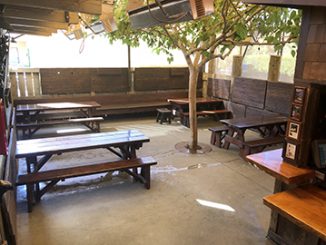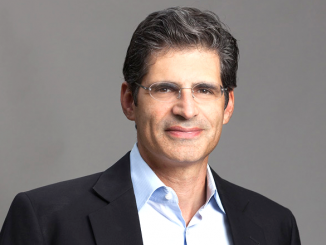BY ALLISON LEVITSKY
Daily Post Staff Writer
Senate Bill 50, state Sen. Scott Wiener’s controversial pitch to preempt local zoning and allow denser housing near transit and jobs, has been killed until next year, the chair of the Senate Appropriations Committee announced yesterday (May 16).
Sen. Anthony Portantino, D-La Canada Flintridge, announced at the beginning of yesterday’s committee hearing that the bill would become a “two-year bill,” which means it will be eligible for a vote beginning in January. Wiener said he was disappointed but won’t give up on the bill.
The committee didn’t vote on SB50, and Portantino didn’t explain why the bill was being delayed.
The bill divided politicians across the state and in the mid-Peninsula, with housing advocates, developers and labor unions pitted against homeowners concerned about apartment buildings being built next to single-family homes.
“We’re not going to solve the housing crisis by not doing anything,” said Palo Alto Vice Mayor Adrian Fine, a supporter of SB50. “It’s contentious, but the fact of the matter is that cities have failed for decades to build enough housing. It’s an increasing crisis, and people who oppose SB50 — they need to come up with alternative solutions, and I don’t see them doing that.”
But Palo Alto Mayor Eric Filseth, who devoted his State of the City address to defeating SB50, had a different take. He said the bill was “poor policy,” noting that Palo Alto had already started implementing some of the “most sensible parts” of SB50.
‘Ideology and power’
“Much of the rest of (SB50) was ultimately about ideology and power, more than any actual solution,” Filseth told the Post. “It surely says something about a bill when the way you buy political support for it is handing out exemptions.”
Filseth added that housing costs and transportation remain “very serious problems” in the Bay Area and said he hopes Sacramento takes the year to “work with cities, rather than against us.”
Menlo Park Mayor Ray Mueller, another SB50 critic, echoed that sentiment.
“Certainly, the housing crisis isn’t delayed, and we still have to roll up our sleeves as a city and work to address it,” Mueller said. “We have a number of housing projects that are currently in our pipeline that we need to continue to work to deliver.”
Mueller added that he hopes the state moves away from pre-empting local zoning and instead looks at increasing the Regional Housing Needs Allocation, the quota the state gives to each city for new housing, to “accurately reflect housing demand and provide targets that are more appropriate.”
Mueller said the state could help by rewarding cities who build housing with money for infrastructure and education impacts.
Newsom reveals he supported SB50
Gov. Gavin Newsom never took a clear side for or against SB50, but said yesterday that he was “disappointed” by the committee’s decision to delay the bill.
“California must address the housing supply shortage head-on, and we need to be able to use every tool in the toolkit to address this systemic crisis,” Newsom said in a statement. “In our proposed budget, we put forth a series of intensive solutions to jumpstart production and incentivize cities to do the right thing. But developing housing around transit must also be part of the solution, and today’s developments can’t end or stall that critical conversation.”
And Wiener said that while he was disappointed at the postponement, he remained “100% committed to moving the legislation forward.”
“California faces a 3.5 million-home shortage — equal to the combined housing shortage of the other 49 states — and the status quo isn’t working,” Wiener said in a statement. “California’s failed housing policy is pushing people into homelessness, poverty and two-hour commutes, is pushing working families out of their communities and out of the state entirely and is undermining California’s climate goals.”
Hill doesn’t reveal his position on SB50
Sen. Jerry Hill, D-San Mateo, serves on the Appropriations Committee, but declined to tell the Post his position on SB50.
“Making SB50 a two-year bill allows more time to develop this legislation so it better addresses California’s dire housing crisis and the concerns voiced by many communities throughout the state, who have said they want flexibility to achieve goals in ways that best suit their locales,” Hill said in a statement to the Post.
By the time SB50 is eligible for a vote, Hill, 71, will be in his final months in office, so a vote on the bill may fall into the lap of his successor.
Two of the contenders for his seat said yesterday that they supported aspects of the bill, but didn’t say whether or not they supported it in its current form.
One of the candidates, Redwood City Councilwoman Shelly Masur, said she appreciated that the bill brought a new focus to the housing crisis.
“I’d love for the state to see cities as partners in the effort to build housing,” Masur told the Post. “What I would like to see is that cities be given an opportunity to develop their own transit-oriented plan that follows the goals of SB50 and to do that within a certain timeline, and then if they didn’t develop a plan within a specific timeline, then SB50 would kick in.”
A ‘conversation-starter’
One of Masur’s contenders, former state Assemblywoman Sally Lieber, said she was glad there would be more time to discuss the bill in the Senate.
She said she called Wiener’s office yesterday to thank him for “being the conversation starter.”
“I’m going to be working to see that it doesn’t go dark over this year, and to keep talking to people to see what is the right kind of approach,” Lieber told the Post. “What SB50 has done in a very powerful way, I think, is to allow the governor to announce his support for very strong measures.”
Only a fraction of the local news stories covered by the Daily Post appear on this website. To get all the local news, including many stories you can’t find online, pick up the Post every morning at 1,000 Mid-Peninsula locations.




Adrian Fine, you’;re not going to solve the “housing crisis” by letting companies and universities add millions of sq feet office space and tens of thousands of new jobs but only s few “affordable” $2,000,000 condos and no BMR housing units.
Common sense should tell you that.
From Feb 3, 2017 article in Daily Post reporting on campaign contributions from developers to Adrian Fine: “He received $999 checks from Keenan, Gates, KG-Brannan, Rapp, Palmer and Yamagiwa, as well as $1,000 from Benjamin Cintz, $900 from Jay Paul Company and smaller contributions from several employees of Jones Lang LaSalle, a commercial real estate company. Other developers and real estate professionals who contributed to him were Jim Baer ($499), David Kleiman ($250) and R&M Property ($650).
Only three of Fine’s contributions were $1,000 or greater, with $1,000 from Cintz and Joseph Martignetti and $2,500 from CREPAC. Fine reported receiving the Oct. 20 CREPAC donation on Oct. 24, apparently within 24 hours, as per the Political Reform Act.
Overall, he received $25,724 between Oct. 23 and Dec. 31, according to his filing, about a third of the $77,267 total that he raised during his campaign.”